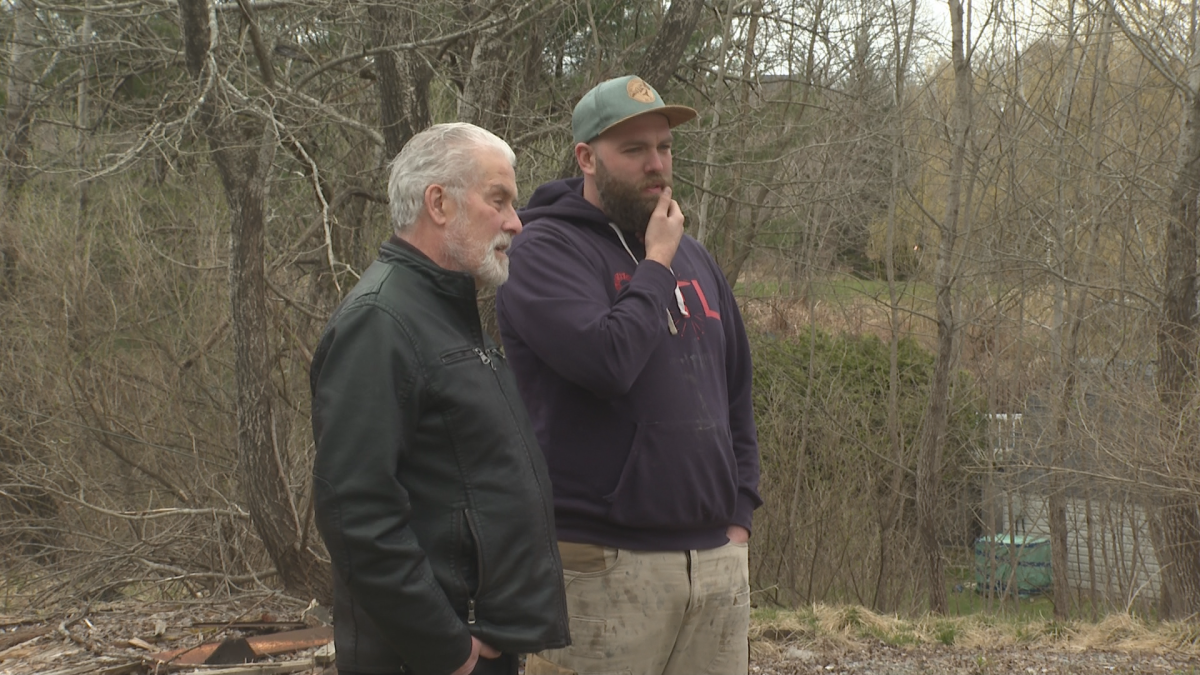A non-profit in Saint John, N.B., has set out on a mission to convert abandoned buildings scattered throughout the city into affordable housing.

Brent Harris, the founder of the Saint John Tool Library, has launched an initiative dubbed “Vacant to Vibrant,” where he’s working to purchase vacant properties and renovate them into transitional housing units.
“It’s not just arenas that are stranded, there are tons of vacant buildings,” Harris said.
He noted that in addition to finding the funds necessary to make the project a reality, identifying the owners of these unused buildings remains a challenge.
Despite the obstacles ahead, Harris, who’s also a city councillor, said he’s making progress as the project sets its sights on its first potential residence on Bay Street. He said it could offer housing for up to four people.
“We’ve started to build a plan for rehab on that. We’ve started to build a bit of a price tag on that, and we’ve found the funding sources that we can apply to,” he said, adding that the project has already received some financial pledges.
“The beautiful thing about vacancy is that you have a standing envelope. Even if it needs a new roof, new window, new doors … that’s all doable work. Not only is it cheaper than building from scratch, but it’s also much faster and much less complex.”
Harris said that with the assistance of community members and stakeholders, he thinks a substantial impact can be achieved. He’s currently working to fundraise about $40,000 as a starting point.
- Canada warns First Nations people to carry passport when crossing U.S. border
- Free room and board? 60% of Canadian parents to offer it during post-secondary
- Trump keeps carveout under CUSMA in new 10 per cent global tariff
- Porter flight from Edmonton loses traction, slides off taxiway at Hamilton airport
“There’s 50 buildings here to go after that can house 300 people,” he said.
134 vacant buildings in the city
According to Benn Purinton, the city’s dangerous and vacant building program manager, that number could be even higher.

Get breaking National news
“Currently, there are 134 vacant buildings monitored by the program that are regularly inspected and classified based on level of risk,” Purinton said in an emailed statement to Global News on Wednesday.
Graham Savage, who was the project manager for the Cloverdale Centre for Women transitional home development in 2022, is getting involved with the Vacant to Vibrant initiative as he said Saint John is experiencing a “crisis situation” with homelessness.
“We have a number of properties around this city that would be salvageable,” he said, noting that the Bay Street location is also adjacent to an empty lot where an additional dwelling unit could be developed.
“We could be between seven or eight people who we find a place for and give a chance for them to transition away from the streets and back into a much better shelter situation.”
Savage said Saint John residents should see opportunity in the number of abandoned buildings throughout the city, as opposed to removing the structures.
“It seems the default is (we should) ‘demolish.’… We should really be looking at, ‘How can we salvage?'” he said.
Echoing Harris’s sentiments, Savage said the biggest challenge a project like Vacant to Vibrant faces is access to adequate financing.
“They need the resources to do it,” he said, adding that non-profit organizations working on affordable housing should receive the necessary public funds to complete projects.
“The government’s going to spend the money one way or another. They’re either going to spend it on housing or people who aren’t housed to try to solve problems.”
Financial hurdles
Justin Sweeney, a financial consultant who’s advising on the initiative, said the biggest challenge related to securing financing for affordable housing projects is that the “economic case” for potential returns isn’t as lucrative to appease traditional lenders such as banks.
“A lot of those injections of capital could come through a grant or maybe there’s a very benevolent individual who wants to see the housing happen, or even there might be a contribution of land,” he said.
“Real estate development is challenging at all levels. Unknown markets, challenges in labour costs, and that’s compounded when you’re trying to do it at an affordable or deeply affordable rate.”
Sweeney said it can take a non-profit between 18 and 24 months to secure the proper amount of funding for an affordable housing start.
“We’re working systems and bureaucracies that are a lot of times out of control,” he said. “A lot of time, you’re still fighting the communication of the value of these projects to neighbours and communities. Even sometimes when you’re successful in achieving capital, you then face pushback of the location.”
He said it can be frustrating grappling with the challenges of getting projects like Vacant to Vibrant off the ground.
“Especially when you see the food bank usage, homelessness, rates of unaffordability. As you see those continue to climb and you feel like you’re trapped in bureaucracy, I would say that it does feel very frustrating.”
Sweeney said he does believe there is “ample opportunity” in renovating unused properties throughout Saint John and converting these buildings into housing.
“This is a priority that’s been identified by a number of different housing advocates as far as being able to repurpose, or put back into the stock, a lot of these properties that are just sitting unutilized,” he said.
“I feel very confident that a project like Vacant to Vibrant could deliver on housing units in a more expedient, less costly fashion than new builds and put these particular assets back into place.”
— with files from Nathalie Sturgeon









Comments
Want to discuss? Please read our Commenting Policy first.